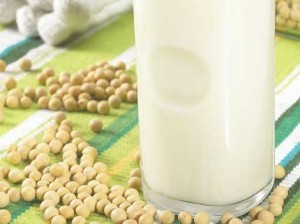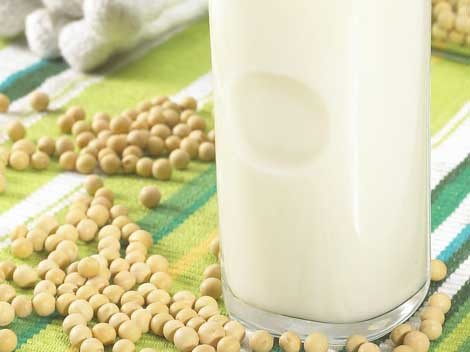
Researchers estimate that we may be able to prevent as many as 9 out of every 100 cancer cases (9%) by changing our diets. But it is difficult to be exact about this. Research also suggests that about 5 out of 100 cancers (5%) could be avoided by maintaining a healthy body weight. When concerns about soy are raised, they generally focus on findings from rodent models of cancer which tend to use isolated soy compounds like soy protein isolate or high doses of isoflavones (compounds found in soy). However, soy is metabolized differently in humans than it is in mice and rats, so findings in rodents may not apply to people. There is no evidence in the medical literature that soy protein isolate is bad for humans, compared to other forms of soy. Soy protein isolate is often used as a supplement in randomized studies of the effects of soy on health and none of these studies have shown harm. Most of the studies suggesting benefits of soy consumption in people have measured how much soy foods people are eating, including tofu, soybeans, and soy milk. These foods are more commonly eaten in Asian countries. In the U.S., purified forms of soy are used in the food supply, including in energy bars and soy hot dogs. The few US studies that have measured these forms of soy do not suggest harm.
Many women believe soya supplementation can help lower their risk of breast cancer. But a new study suggest caution may be needed.
Recently scientists at Memorial Sloan-Kettering Cancer Center and Weill Cornell Medical College in New York, NY, conducted a randomized placebo-controlled study of the effects of soya supplementation on gene expression (the way genes function in the body) and biological markers of breast cancer risk among women diagnosed with invasive breast cancer.
The study, run between 2003 and 2007 at Memorial Sloan-Kettering, included 140 women who had recently undergone breast biopsies and were diagnosed with stage 1 or 2 breast cancer and scheduled to have a mastectomy or lumpectomy two to three weeks later.
During the time between their diagnosis and surgery (a period of between 7-30 days), the women were randomised to receive either a soya protein supplement or a placebo (milk protein).
Tumor tissues samples taken before and after surgery were …
Even though animal studies have shown mixed effects on breast cancer with soy supplements, studies in humans have not shown harm from eating soy foods. Moderate consumption of soy foods appears safe for both breast cancer survivors and the general population, and may even lower breast cancer risk. Avoid soy supplements until more research is done. So, enjoy your occasional tofu stir-fry or tofu burger – they are unlikely to increase your risk of breast cancer and, on balance, are some of the healthier foods you can eat!
Please Read this Article at NyrNaturalNews.com





Leave a Reply